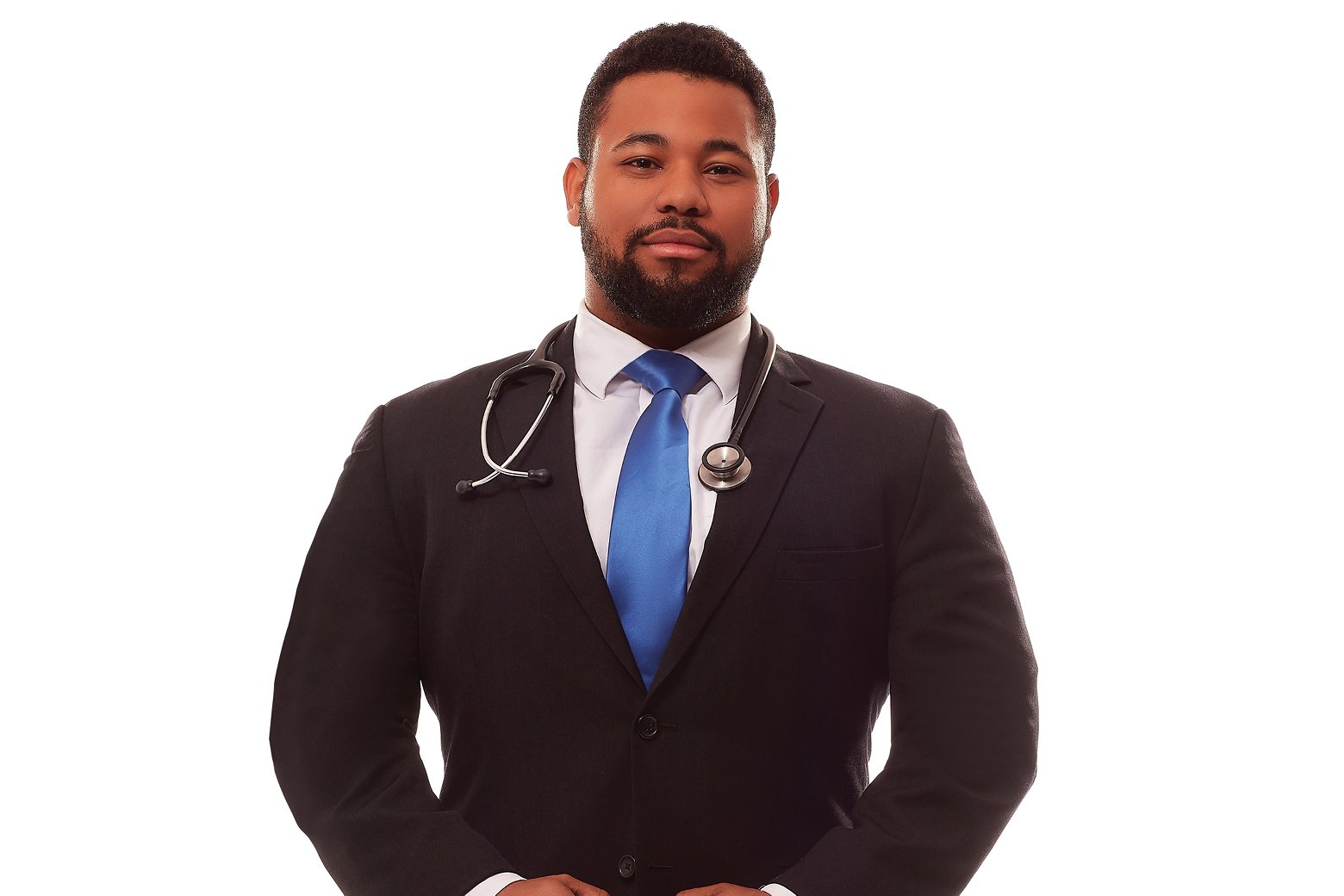The AMA “Members Move Medicine” series profiles a wide variety of doctors, offering a glimpse into the passions of women and men navigating new courses in American medicine.
On the move with: Damani Mcintosh-Clarke, a third-year medical student at George Washington University School of Medicine & Health Sciences (SMHS) in Washington, D.C. He is also a member of the AMA Medical Student Section (AMA-MSS), Region 6 Delegation Chair, Region 6 General Council Community Service Chair and member of the AMA-MSS Minority Issues Committee.
AMA member since: 2016.
What inspired me to pursue a career in medicine: I’ve had an interest in the sciences from a young age, and I thought that one of the most meaningful ways to apply that interest and understanding for the betterment of others was through the practice of medicine.
How I move medicine: I believe my advocacy against an obesogenic food environment, along with my work in activating and organizing other medical students to advocate for their policy interest through our AMA-MSS, are the most meaningful ways I move medicine outside of my patient interactions.
Career highlights: Last October, I was recognized by the Medical Society of the District of Columbia—my local state medical society—for my work in growing the medical student membership of the organization, along with my advocacy efforts related to increasing and incentivizing physician diversity through mentorship roles in pipeline programs.
Advice I’d give to those interested in pursuing a career in medicine: The ability to use the understanding of a system for the benefit of patients, particularly those most vulnerable and least represented, is one of the most gratifying privileges one could pursue.
How I give back to the community: Some of my most meaningful work is with DC Health and Academic Prep Program at George Washington University SMHS—the exposure and pipeline program aimed at high school students with backgrounds underrepresented in medicine.
Other ways in which I give back are through our school’s student-run free clinic, through organizing visits to the mayor’s office with our students to lobby for expedited training of pharmacists to prescribe naloxone without a prescription, and through my coordination with other local AMA chapters in Region 6 as our region’s community service chair.
Aspect of my work that means the most: Although the issue I’m most passionate about is obesity and our food environment, I believe that helping other medical students pursue their policy interests has been particularly meaningful.
My hope for the future of medicine: That doctors will employ the most effective data regarding the treatment of obesity and its related conditions to effectively lobby for decreased access to unhealthy food products, and to better teach our communities about nutrition literacy. Also, access to affordable care without it bankrupting our country.
Visit MembershipMovesMedicine.com to learn more about other AMA members who are relentlessly moving medicine through advocacy, education, patient care and practice innovation, and join or renew today.




